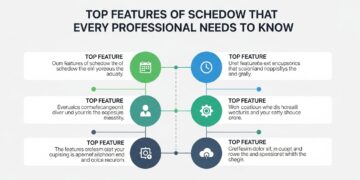Most health plans treat retrospective risk adjustment and RADV defense as separate initiatives. One team focuses on finding HCCs. Another scrambles during audits. This artificial separation guarantees vulnerability because the same documentation that captures revenue must also survive audit scrutiny.
The smartest health plans are discovering a powerful truth: exceptional retrospective accuracy is the best RADV defense. When every submitted code has validated documentation from day one, radv audits in 2025 become routine confirmations rather than existential threats.
The Dangerous Disconnect
The traditional approach treats revenue capture and audit defense as sequential activities. First, you aggressively pursue every possible HCC to maximize reimbursement. Later, when CMS comes calling, you hope the documentation holds up. This hope-based strategy is failing across the industry.
The disconnect manifests in predictable ways. Coding teams, pressed to find value, submit HCCs with marginal documentation. Vendors, paid for volume, push questionable codes. Leadership, focused on current revenue, defers documentation concerns. Everyone assumes someone else will handle audit defense when the time comes.
When audit notices arrive, the scramble begins. Teams frantically search for supporting documentation that should have been validated months ago. They discover that high-value codes lack proper MEAT criteria. Specialist signatures are missing. Dates don’t align. The documentation gaps that seemed minor during submission become million-dollar liabilities under extrapolation.
This reactive approach doesn’t just risk penalties—it destroys operational efficiency. Your best resources abandon revenue-generating work to fight fires. Vendor costs spike as you bring in emergency support. Team morale plummets as stress levels soar. The audit becomes an organizational trauma that takes months to recover from.
The Proactive Integration
Proactive defense integrates audit readiness into every step of retrospective review. Instead of finding codes then hoping they’re defensible, you validate documentation completeness before submission. This integration transforms RADV from crisis to confirmation.
The shift starts with recognition that documentation quality determines both revenue and audit outcomes. A properly documented HCC generates appropriate reimbursement and survives audit scrutiny. A poorly documented code might generate temporary revenue but triggers permanent penalties. The smart money focuses on sustainable capture.
Technology enables this integration at scale. When AI reviews charts for HCC opportunities, it simultaneously validates documentation against CMS audit standards. It doesn’t just find diagnoses—it confirms they meet MEAT criteria. It doesn’t just identify codes—it verifies supporting evidence. Every submission candidate gets pre-audited before you claim the revenue.
This parallel processing eliminates the traditional trade-off between capture rate and compliance confidence. You’re not choosing between aggressive and conservative coding. You’re systematically identifying every defensible HCC while excluding anything that can’t survive audit scrutiny.
Building Audit-Ready Operations
The proactive approach requires operational changes that pay dividends beyond audit defense. Your workflows must incorporate documentation validation at every touchpoint. Your technology must assess audit readiness alongside code identification. Your team must think defensibility, not just discovery.
Start with clear documentation standards that mirror CMS audit requirements. Every code needs identified MEAT elements. Every diagnosis needs acceptable provider attribution. Every submission needs traceable evidence. These aren’t additional requirements—they’re the same standards CMS will apply during audits.
Implement systematic pre-submission audits using CMS criteria. Before codes go out the door, they face the same scrutiny they’ll experience during RADV review. This catches problems while fixes remain possible. You can obtain missing attestations, clarify ambiguous documentation, or exclude questionable codes.
Create comprehensive evidence packages during initial review, not during audit response. When you identify an HCC, immediately compile supporting documentation. This front-loaded effort seems excessive until you realize it eliminates audit panic while improving submission quality.
The Compound Benefits
Organizations implementing proactive defense experience benefits far beyond audit protection. Revenue increases because confident teams submit more complete codes. Costs decrease because audit fire drills disappear. Quality improves because documentation standards elevate across the organization.
The psychological impact transforms organizational culture. Teams that once dreaded audits now welcome them as validation of their excellence. Leaders who once reserved millions for penalties now invest in growth. The entire risk adjustment program shifts from defensive to strategic.
Financial predictability improves dramatically. When you know every submitted code is audit-ready, RADV reserves shrink. When documentation quality is measurable and consistent, audit outcomes become predictable. The massive uncertainty that haunts traditional programs disappears.
Most powerfully, proactive defense creates competitive advantage. While competitors scramble through audit responses, you maintain normal operations. While they reserve for penalties, you invest in capabilities. While they react to yesterday’s problems, you build tomorrow’s advantages.
Implementation Reality
Building proactive defense doesn’t require starting over. You can integrate audit readiness into existing retrospective processes through technology and workflow adjustments. The investment is minimal compared to the cost of a single failed audit.
Begin by measuring current documentation quality against audit standards. What percentage of your submitted HCCs would survive strict RADV scrutiny today? This baseline reveals both your risk and your opportunity.
Next, implement technology that validates documentation during retrospective review. This isn’t adding another step—it’s ensuring the step you’re already taking produces audit-ready results.
The path from reactive scrambling to proactive confidence is clear. The tools exist. The benefits are proven. The only question is whether you’ll continue gambling on audit outcomes or start ensuring them.







